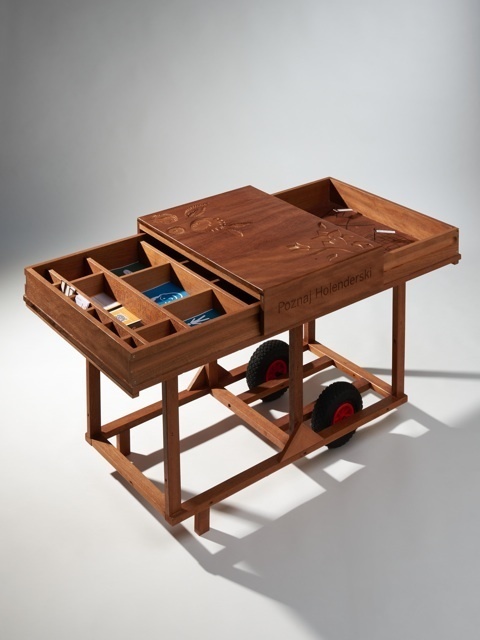Pooling people
Author: Elise van Beurden
Polish labour migrants in Brabant
For about a decade now, Polish labour migrants have been settling in my hometown Steenbergen (province of Noord-Brabant). They came here to work in jobs such as the horticulture sector. Many migrants visit Steenbergen for a few months before returning to Poland. However, there is a growing number of migrants who decide to stay in Steenbergen to build a future there. The inhabitants of Steenbergen only seem to know about the Polish people they encounter on their route from home to work and from home to the supermarket. Steenbergers seem to have little knowledge of Polish culture. In a small rural town without a culturally diverse mentality, more background information is needed in order to be able to live in a state of conviviality. With my project 'Pooling People' I want to contribute to solving a local problem and to involve stakeholders such as the municipal government, the library and the employment agency. I try to empathise with the communities: I design for them and with them rather than focusing on my own personal expression.
Exploring social contact
By conducting intensive field research of both the Polish and Dutch inhabitants and various other stakeholders, I became inspired by the needs, future visions, differences and similarities within the communities. For example, the Polish migrants were surprised by the relaxed lifestyle of the Dutch inhabitants, whereas the traditional Polish lifestyle requires discipline in work and religion. Strangely enough, social contact between cultures did not appear obvious to either party. During the dozens of interviews, surveys and workshops, I developed and tested open design tools that stimulate acquaintance, and in the longer term, social contact. For example, I designed an apron to explain recipes, and a toolbox for collaboratively writing a Polish-Dutch story. Through my research, I found out that the barrier for social contact goes far beyond language. The inhabitants prefer to get to know each other from a safe distance, step by step.
Tool table
In response to these results, I designed a table with tools for social contact. The 'tool table' is an open design acquaintance tool, a mobile table that collects the stories, ideas and visions of citizens, and provides assignments and questions for both cultural groups. By using 100-year-old mahogany wood reclaimed from the Gummarus church in Steenbergen, the table is given a traditional and Catholic expression. In addition, its modifiable content provides an adventure connected to the town's residents. My 'tool table' can be used for both individual acquaintance and group workshops. The questions include: 'what do you think about the local government's interference regarding social contact between the two groups?' Or: 'what are places for social contact in this town?' The table was tested in different public spaces in Steenbergen, such as the library, the town hall and the Polish hotel. The design of the table has elicited curiosity and the table's content turned out to be informative and explorative.
Discussion
The editorial board invites readers to reflect and react on the following questions: Open design also implies that users can continue to further develop the product themselves. We are curious to find out whether and how the Polish and local people of Steenbergen have continued to use this tool table, and whether they have also invented and added successful interaction tools themselves. Perhaps readers can contribute with open design examples of social interaction in which stakeholders themselves have invented new ways of getting to know each other better, facilitated by social designers.
'Pooling People' was Elise's graduation project in 2015 (Product Design/Open Design).Links
CONTRIBUTE
Feel free to contribute to Beyond Social.









